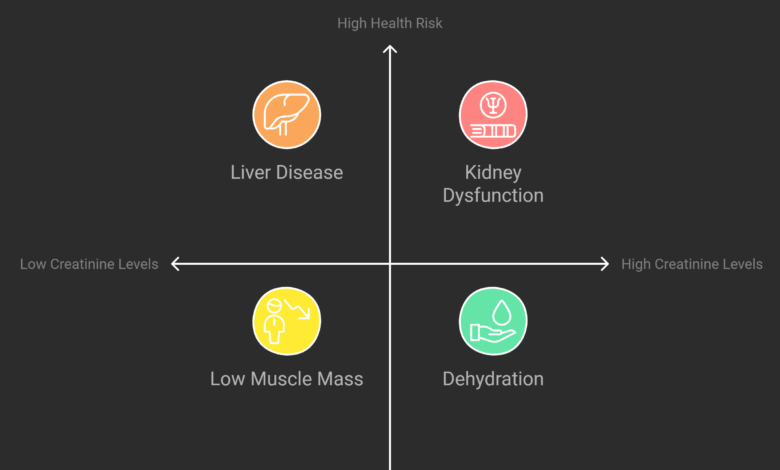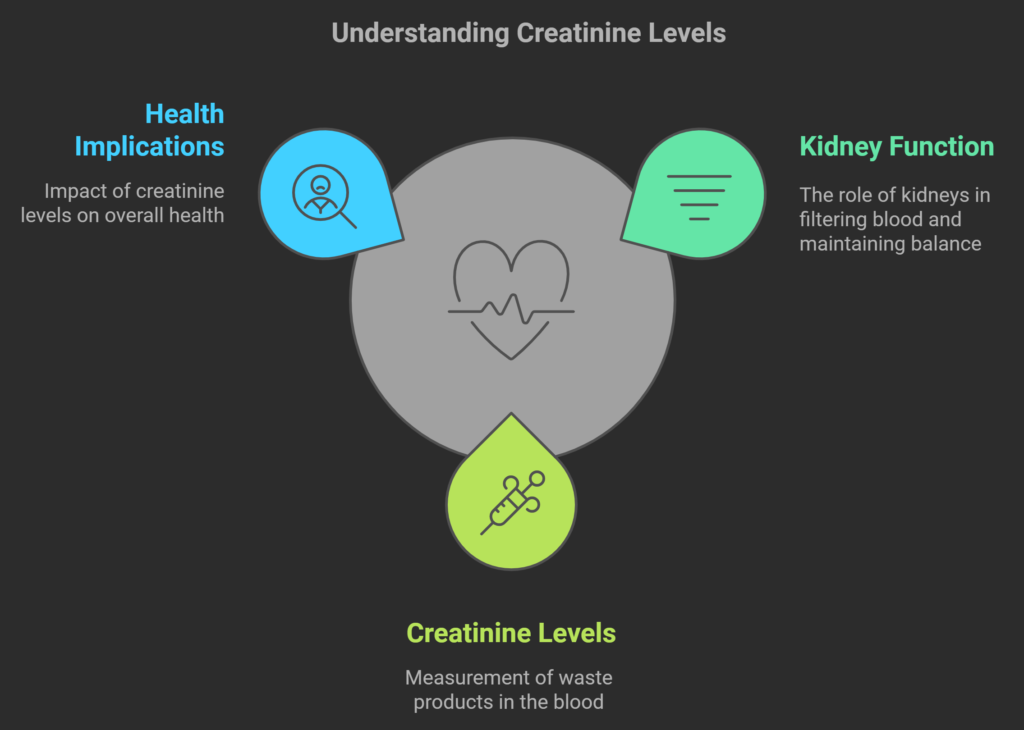Creatinine Value Table: Understanding and Interpreting Creatinine Values

what is creatinine Value table?
creatinine value table is a vital indicator of kidney function, and understanding creatinine levels can help you keep track of your health. In this article, we’ll explore the importance of creatinine, interpret values through a “kreatininwert tabelle” (creatinine levels table), and discuss what these values mean for your body. Whether you’re new to this topic or looking for a deeper understanding, this article will break it down in a simple yet expert way.
What is Creatinine and Why Does it Matter?
Creatinine is a waste product generated by your muscles as they work. It is created during the breakdown of a molecule called creatine, which helps supply energy to muscle cells. Since creatinine is produced consistently and filtered out of your body through your kidneys, it serves as a reliable marker for assessing kidney health.
Why Should You Care About Your Creatinine Levels?
Your kidneys are responsible for removing creatinine from your bloodstream. If your kidneys aren’t functioning properly, Creatinine Value Table levels in your blood will rise, indicating potential issues such as chronic kidney disease or other renal dysfunctions. Monitoring these levels can help detect problems early and manage them effectively.
How is Creatinine Measured?
Doctors usually measure creatinine levels through a blood test or urine test. The results are typically compared to a reference table or chart, commonly referred to as the “kreatininwert tabelle.” These tables provide a range of normal, elevated, or concerning values based on age, gender, and sometimes other factors like body size or muscle mass.

Understanding the Creatinine Levels Table (Kreatininwert Tabelle)
A creatinine levels table helps categorize creatinine values into normal, borderline, or high levels. Here’s a closer look at what the table typically includes and how to interpret it.
Normal Creatinine Levels by Gender and Age
Creatinine levels vary based on gender, age, and muscle mass. For example:
- Men: Normal levels range from 0.7 to 1.3 mg/dL. Men tend to have slightly higher levels due to greater muscle mass.
- Women: Normal levels are usually between 0.5 and 1.1 mg/dL.
- Children: Normal values are generally lower, around 0.3 to 0.7 mg/dL, depending on their age and growth stage.
Factors Influencing Creatinine Levels
The values in the table can vary for several reasons:
- Age: As you age, muscle mass declines, potentially lowering creatinine levels.
- Lifestyle: Athletes or people with higher muscle mass might naturally have elevated levels.
- Diet: High protein intake can temporarily increase creatinine.
Interpreting these levels correctly depends on comparing your test results with the standard kreatininwert tabelle provided by your healthcare provider.
What Does It Mean When Creatinine Levels Are High?
High creatinine levels can be alarming, but they aren’t always a cause for immediate concern. Let’s explore some of the reasons for elevated levels and what they indicate about your health.
Potential Causes of Elevated Creatinine
- Kidney Dysfunction: This is the most common cause and often points to conditions like chronic kidney disease or acute kidney injury.
- Dehydration: Lack of proper hydration can reduce kidney filtration, leading to a spike in creatinine.
- Medications: Certain drugs, like non-steroidal anti-inflammatory drugs (NSAIDs) or antibiotics, can impair kidney function temporarily.
- High Protein Diets or Supplements: Excessive protein intake or creatine supplements can artificially inflate creatinine levels.
Symptoms to Watch For
If your creatinine levels are high due to kidney problems, you may experience:
- Fatigue
- Swelling in the legs or feet
- Decreased urine output
- Difficulty concentrating
What to Do About High Creatinine?
The first step is always to consult a healthcare provider. They may recommend additional tests to identify the underlying cause and suggest lifestyle changes or medications to address the issue.
What Does Low Creatinine Indicate?
While high levels get more attention, low creatinine levels can also reveal important health clues.
Common Causes of Low Creatinine
- Low Muscle Mass: Conditions like aging, muscle atrophy, or malnutrition may result in lower levels.
- Pregnancy: During pregnancy, the increased blood volume and kidney filtration rates often lower creatinine.
- Liver Disease: Since the liver plays a role in processing creatine, liver dysfunction can lead to reduced creatinine production.
Should You Be Concerned About Low Levels?
Low levels are less common and usually less worrisome than high levels. However, they may indicate underlying conditions that require attention, particularly if accompanied by other symptoms like fatigue or weight loss.
How to Maintain Healthy Creatinine Levels
Keeping your creatinine levels in check is largely about taking care of your kidneys and overall health. Here are some tips to help:
1. Stay Hydrated
Proper hydration supports kidney function and ensures creatinine is efficiently filtered from the body. Aim for at least 8 glasses of water per day, or more if you’re active.
2. Balance Your Protein Intake
While protein is essential for your body, excessive amounts can strain your kidneys. Stick to recommended dietary allowances unless advised otherwise by your doctor.
3. Exercise Moderately
While regular exercise is healthy, overexertion can temporarily raise creatinine levels. Find a balance that suits your fitness goals without overloading your kidneys.
4. Avoid Nephrotoxic Substances
Certain medications and substances, including alcohol, can damage your kidneys over time. Always follow prescription guidelines and avoid unnecessary over-the-counter drugs.
When to Consult a Doctor
Regular health check-ups are crucial for early detection of any issues. You should consult a doctor if:
- You notice swelling, fatigue, or changes in urination.
- Your creatinine levels are consistently outside the normal range.
- You have a family history of kidney disease or other risk factors.
Conclusion
Understanding your creatinine levels through a kreatininwert tabelle is an essential step toward managing your kidney health. While slight variations in levels can be normal, persistent abnormalities may require medical attention. By staying informed, maintaining a healthy lifestyle, and consulting your healthcare provider when needed, you can ensure your kidneys remain in top shape.
Taking charge of your health has never been easier—so keep an eye on those numbers and make informed decisions to live your healthiest life!
Sie können auch lesen






